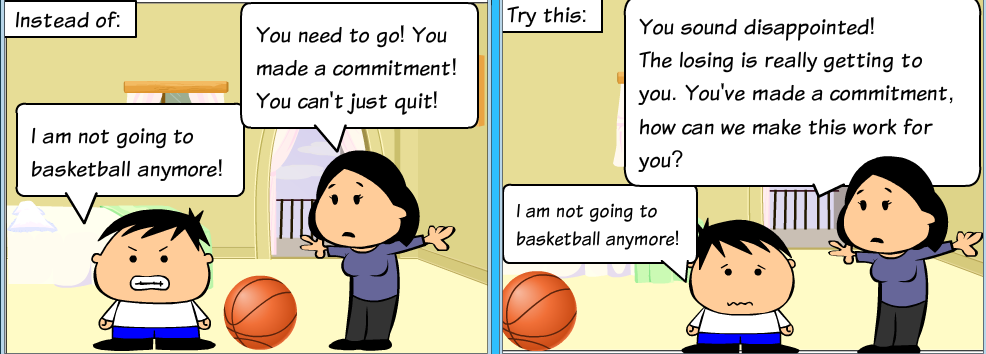
Dear Adina,Do you have any suggestions handling disappointment for kids? My son gets upset when he is on a team that loses most of their games. He just finished an uninspiring basketball season. Baseball teams were just posted last night and he is already complaining: “There are no good players on my team!” “We are going to have a lousy season!”Thanks so much for your question. It is timely because my son just had his baseball tryouts last week and I am sure I will hear some grousing from him as well!I always try to tell my kids what I learned from my head counselor, Eudice, in camp, “It is not whether you win or lose, its how you play the game.”They usually roll their eyes at me and scoff. Kids take their sports seriously. I know that it is especially important to my boys that they have a good team and that their team plays well. But that is not always going to happen.My son was once on a team that for 2 years in a row was undefeated. He was thrilled. I remarked to another mother, whose son was on my son’s team, about how happy my son was. She agreed, but said, “I am happy for my son too, but really, I know this sounds crazy, but I would have like to see him lose a few games. They learn so much about life from losing!”She was right. Losing is not necessarily a bad thing. It is a good thing to remember when we watch our kids play sports. It helps keep things in perspective.With that in mind we also need to remember is that we do not have to fix the problem at hand, that is not our job. We can listen to our kid’s complaints without getting emotionally involved.I have learned in my 20 years of marriage (and after reading Men are from Mars, Women are from Venus) that whenever I complained to my husband about anything, he would try to fix it.“Well, why don’t you just call her and tell her you don’t want to volunteer for this project.”“Well, why don’t you just cancel your appointment and make it for next week, when you are less busy.”I found it so annoying. I just wanted to grumble a bit and have him listen. Maybe make some sympathetic noises and perhaps some empathy, “That could be annoying..”, “Oh, I know, that is not your favorite thing to do”. That is all I needed really; then I would be okay. I would figure it out myself.It sounds too easy, but here too, all your son needs is a listening ear, some sympathetic noises, and empathy. It’s okay for him to be upset about his team. It’s all part of playing the game. When we try to fix life for our kids or we try to shoo away their feelings, they get upset with us, instead of the situation that they have found themselves in. They lose sight of their problem and the fact that they are capable of solving their own problems and cope with their disappointment.To help him manage his frustrations after a lost game, he just needs to hear:“It can be frustrating to work so hard during practice and then lose the game.”“You dribbled the ball down the court, you passed to your team mates, you defended your position. You did what you could to win the game. After all that, it can be disappointing to lose.”When he complains about his upcoming season, you can do more of the same:“You seem sad about your upcoming season…”“You wish that you had a better team this year.”“You were hoping that you would have a stronger presence on your little league team this season. You are wondering how you are all going to work together to be a success this year.”You can also gently move him towards thinking about some solutions to his problems:“You are probably reviewing in your mind the strengths and weaknesses of each of your teammates and wondering how the coach can make it work.”“You might be wondering if your coach would want you to work with some of the weaker kids on their throwing and catching.”In another article I wrote, I mentioned that I had a meeting with the director of a prestigious preschool. We were discussing the content of the parenting workshops I would be presenting. I asked her, “What is the most important problem your parents have with their kids?” She said, “It’s not so much that they have problems with their kids, it’s that they want a quick fix, they don’t know how to just leave their kids alone and let them be sad when they’re sad, and that their job is not to make their kids happy all the time. They need to stop micromanaging their kids feelings.”This advice applies here as well.So as we move into spring and baseball season, let’s all support our kids with some listening and empathy and remember that what Eudice said is totally true. It is not whether you win or lose it’s how you play the game.
